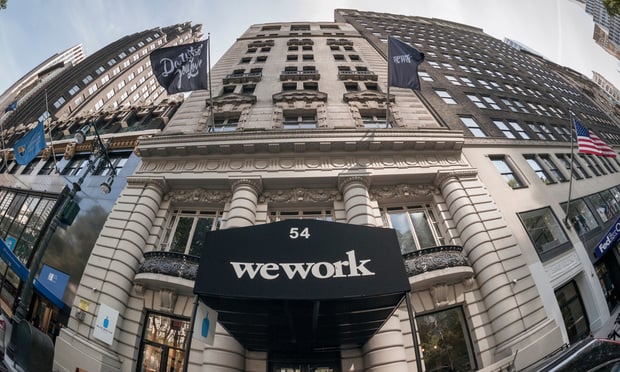Frederick Warburg Peters, CEO of Warburg Realty, says businesses can take any number of lessons from WeWork's woes.
But the most salient lessons are for chief executives. Peters spent 40 years growing Warburg Realty. The business was built on organic growth, which came from his daily feedback sessions from his agents on-the-ground.
Peters also says WeWork eschewed organic growth, which allows executive teams to manage growth. Under that scenario, growth occurs in manageable increments that bring the C-suite together and it is dictated based on revenues and capabilities.
"Organic growth is just what it sounds like," Peters says. "You grow more slowly, building your team as time goes by to make sure you have the right people for your culture in the right seats."
But organic growth requires patience.
"You don't work with such an accelerated time horizon [with organic growth]," Peters says. "Also, you figure out a strategy towards profitability and stick with it, so you don't lose tens of millions every month."
The Warburg Realty CEO put some of the blame WeWork on SoftBank, who, he says, permitted an unsustainable pace of growth. SoftBank was one of WeWork's largest investors before its IPO attempt.
"It [SoftBank's money] caused WeWork to grow at a faster pace than it had either the infrastructure or the bandwidth to manage," Peters says. After the IPO failed in, SoftBank pumped $5 billion into WeWork and accelerated a $1.5 billion equity investment that was originally due to the company next year. Peters also blames SoftBank for disproportionately empowering former WeWork CEO, Adam Neumann, who borrowed against his stock holdings and held stakes companies that own properties leased to WeWork, according to multiple news reports.
"Probably more than anything else, CEOs can't become so messianic that they treat the company's assets like their own," Peters says. "Also, growth needs a real strategy. Furthermore, these valuations based on how much capital is raised are fundamentally meaningless."
Peters draws larger conclusions out of WeWorks problems than just one company whose IPO never made it out of the gate. As bullying and disrupting have become commonplace and even celebrated in society and politics, Peters opines that companies are normalizing it in the business world. Despite the specific problems, Peters thinks the flexible space concept is here to stay. "As the economy grows and evolves away from the model in which most people worked for monolithic companies, this sort of shared space idea, with minimum commitment, will remain very attractive," he says.
He also thinks WeWork can still be successful. "Of course [it can]," he says. "It is still a brilliant idea."
But even if WeWork flounders, there are others there to take its place in the co-working space. "I don't think there will be a void," he says. "There are already numerous other payers in this space."
© Touchpoint Markets, All Rights Reserved. Request academic re-use from www.copyright.com. All other uses, submit a request to [email protected]. For more inforrmation visit Asset & Logo Licensing.







